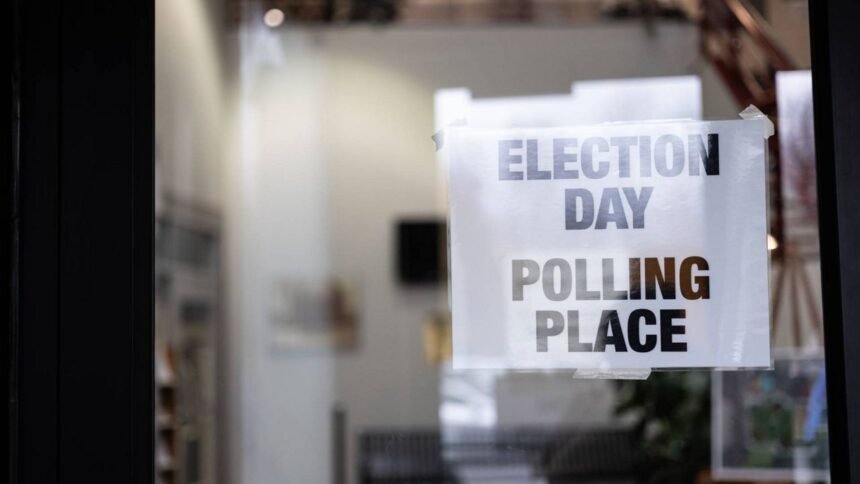The New York state Court of Appeals heard two hours of arguments Monday to weigh the constitutionality of a new state law that will move most local elections to even-numbered years to align with state and federal races.
Leaders with the New York State Association of Counties support overturning the 2023 law that moves several local elections outside of New York City to even-numbered years. The seven justices on the state’s highest court will consider the policy, which passed the Legislature and was signed by Gov. Kathy Hochul to boost voter turnout.
“The thing that’s really the burning question in our mind is a very simple one: what can we do as local government officials if we can’t even set our terms of office?” NYSAC Executive Director Stephen Acquario said after arguments wrapped Monday. “That has now been ‘converted’ to a matter of state concern. And the Court of Appeals is going to allow that to happen?”
The Republican-led challenge, initiated by leaders in Onondaga County, has brought the law through a lengthy legal battle — arguing it conflicts individual county charters. Twenty New York counties are chartered, or have locally drafted and approved laws outlining the structure and authority of county government.
Acquario said he expects the state’s highest court to uphold the law, and will accelerate releasing its decision before Election Day on Nov. 4 when the law will start to take effect.
NYSAC has fought the proposal for several years, maintaining it undermines sections of the state Constitution that make New York a home rule state, which gives local governments the power to define their structure or terms of office.
“Where is the line of local government and state concern?” Acquario said. “That line seems to be evolving and moving more and more toward the state and less and less under the control of a local government. That’s the concern here.”
Village elections, and races for county clerk, sheriff, district attorneys, local judges and others protected in the state Constitution, are exempt from the recent change.
Attorneys representing Republicans fighting the law told the court Monday they’re skeptical the policy would increase voter turnout, but good-government groups in favor of the change argue it’s not their place to decide which groups of voters are most important.
“Your absolute number of people who are voting in the municipal election is significantly higher than the really, very alarmingly small number we see in the odd-year elections,” Common Cause New York Executive Director Susan Lerner said.
Acquario said local issues will be diluted by national and state issues under the law, adding local governments haven’t asked for the change.
Attorneys argued the change should have been done as a constitutional amendment that went before voters to decide.
“Why do we even have home rule?” Acquario said. “Why does it even exist if you can’t decide when your own officials run for office? It’s absurd.”
State lawmakers modeled the law after a similar policy in Colorado, and said at the time it would be good for democracy and streamlined elections would decrease costs for localities.
Supporters cite national research that voter turnout increases by at least 18% during presidential election years.
“What we hear often from New York voters is the complaint that New York has too many elections, it’s hard to keep track of which election is which and which ones they should show up for,” Lerner said. “I have literally had people call the Common Cause office and yell at me about New York’s ‘secret’ elections, saying, ‘I found out there was a local election yesterday and I had no idea.’ This absolutely addresses that problem and consolidates so we have fewer elections.
“Run a good local campaign and people will vote in your local election as well.”
The state Constitution has been amended three separate times to allow for and protect counties’ abilities to govern through charters.
Challengers also argued the law is not a “general law,” which applies alike to all counties other than those wholly included within a city, all cities, all towns or all villages.
In May, an appeals court reversed a lower court judge’s ruling and sided with the state, ruling the law is constitutional, which prompted challengers to appeal to the state’s highest court.











